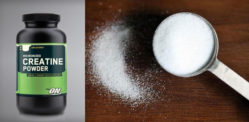"It has beneficial effects on many, many aspects."
When it comes to boosting brain power, we often turn to superfoods and brain games, but research suggests the real secret might be breaking a sweat.
Exercise remains one of the most powerful ways to preserve vitality and slow ageing.
South Asians, though, don’t reap enough of these benefits, as many lead sedentary and stressful lives.
Only 55% of South Asians meet the NHS’s exercise guidelines, compared with 65% of White British people who are adequately active.
For South Asians, this presents an opportunity to improve their mental health and cognition.
Factors preventing them from embracing exercise may stem from cultural expectations that prioritise career ambitions while overlooking their cost to wellbeing.
Being a migrant also poses unique psychological challenges that can make exercise seem extraneous.
On the contrary, exercise has the power to transform many aspects of South Asian lives.
It can reduce the risk of diabetes, heart disease, and stroke — conditions for which South Asians face a higher risk than other ethnic groups.
Regular exercise can build strength, cardiovascular endurance, self-esteem, and, what’s less well known, brain health.
Exercise and Brain Health
 The link between exercise and brain health is not new.
The link between exercise and brain health is not new.
A large body of research has already established that exercise can help reduce the risk of depression and dementia, as well as improve cognition.
This is good news for South Asians, who experience more mental health issues than the general population.
For them, exercise can become an accessible and effective tool to build a stronger and happier brain.
High-intensity exercise in particular has been shown to improve several cognitive abilities.
According to one study, this includes decision-making, problem-solving, memory, and even “executive function”, which involves advanced tasks such as planning and reasoning.
In children, high-intensity exercise improved problem-solving skills and academic performance, while in adults, it enhanced information processing ability and slowed brain ageing.
A new study, published recently, has expanded our understanding of how high-intensity exercise provides a unique set of benefits that influence brain health.
It also offers greater insight into what type of exercise, and at what intensity, can deliver those coveted brain benefits.
What Did the Study Reveal?
 From the present study, scientists concluded that high-intensity exercise benefits the brain, and this happens due to a substance called lactate.
From the present study, scientists concluded that high-intensity exercise benefits the brain, and this happens due to a substance called lactate.
Lactate is naturally produced in the body and begins to accumulate during hard exercise.
A high level of lactate increases another substance called BDNF, or Brain-Derived Neurotrophic Factor, which is also known as the brain’s growth factor.
“BDNF is an important molecule for making the brain feel young, fresh, and able to develop,” says Professor Marcus Moberg, co-author of the study and researcher at the Swedish School of Sport and Health Sciences.
BDNF promotes learning and memory, in other words, neuroplasticity in the brain.
However, BDNF levels decline as we age, suggesting there might be a link between falling BDNF levels and declining brain health.
“We know that BDNF levels decrease with age. Especially in diseases like Alzheimer’s, schizophrenia, and depression, it’s well documented that BDNF levels decline,” says Moberg.
“It may help both the brain and peripheral nervous system adapt to the stress of exercise.”
Fortunately, he adds, it’s known that high-intensity exercise improves brain health or at least helps to slow this decline.
For South Asians, therefore, the benefits of regular exercise stretch far beyond fitness, from metabolic health to mental health.
When it comes to brain health, the key is “high intensity”. The exercise must feel hard to deliver benefits to the brain.
But how can exercisers know if they’re really working out at a high enough level? It helps to understand the difference.
Easy vs Hard Exercise
 There’s a whole spectrum between the quiet rhythm of a walk and, for example, the explosive power of a 100-metre sprint.
There’s a whole spectrum between the quiet rhythm of a walk and, for example, the explosive power of a 100-metre sprint.
You can decide how easy or how hard you want to go.
Running is considered an exercise, and so is gentle walking.
Some exercise enthusiasts, however, prefer doing sprints, which require an all-out effort for a short burst of time.
A 100-metre sprint, for instance, takes only about 12 to 15 seconds to complete but leaves you gasping for air for several minutes afterwards.
What makes a 100-metre sprint hard is that it’s performed at maximum effort. You have to give your full 100% in a true sprint.
According to this study, and several previous ones, high-intensity exercise typically falls between 80% and 100% of your physical capacity or effort, sustained for about 20 minutes.
An exerciser working at that level would perceive it as a “very hard” or “highest possible” effort.
A Brain-Friendly Exercise Approach
 Moberg recommends doing 15 to 20 minutes of hard exercise that raises your heart rate to about 80–90% of its maximum, which is quite intense.
Moberg recommends doing 15 to 20 minutes of hard exercise that raises your heart rate to about 80–90% of its maximum, which is quite intense.
What’s important to remember is that duration is not as crucial as intensity when it comes to lactate accumulation.
“You could be running for two, even three hours without reaching these levels if you have low intensity,” says Moberg.
Exercises such as squats, which involve several joints and muscle groups, may yield more benefit than isolation movements such as a biceps curl.
“The more muscles you activate while exercising, the more likely it is that lactate levels will rise,” explains Moberg.
There are plenty of exercises that can help you achieve this outcome.
Short bursts of sprints at near-max effort push your body into lactate mode, giving your muscles and brain a powerful boost.
Start with shorter, milder runs and gradually increase intensity.
Not everyone is a fan of running, though. If that’s the case, stair climbing and burpees are excellent home alternatives that can raise your heart rate quickly.
Perform them in short bursts of high intensity followed by a period of rest.
According to studies, eight weeks or more of HIIT (high-intensity interval exercise) is the optimal duration to achieve measurable cognitive benefits.
A separate but recent study showed that just two to three bouts of vigorous lifestyle physical activity halve the risk of dying from heart disease.
Moreover, it significantly reduced the risk of dying from cancer and all causes.
These findings reinforce the lactate study’s conclusion that only a few minutes of effort can deliver substantial benefits from exercise.
If you’ve never participated in exercise, your goal shouldn’t be to sprint fast but to build consistency with gentle activity.
Once you become more confident, you can gradually introduce high-intensity sessions.
For South Asians, becoming more confident with exercise can also boost self-esteem, alongside improving overall health.
Remember, what’s easy for a well-trained individual might feel hard for someone starting their fitness journey.
It’s best to use your own perception of what feels easy, moderate, and hard. You can also use your heart rate if you prefer a measurable guide.
The key takeaway is this: by occasionally pushing close to your limits, you help your body adapt in ways that gentle exercise cannot, no matter how consistent you are.
And now we know it’s not just your muscles and bones working hard. It’s your brain, too.
“The good thing with exercise is that it has beneficial effects on many, many aspects,” Moberg says.
“It’s everything from the heart to the brain to the muscles to your balance. Prescribing exercise is always the best way to go because it has so many beneficial effects.”






























































